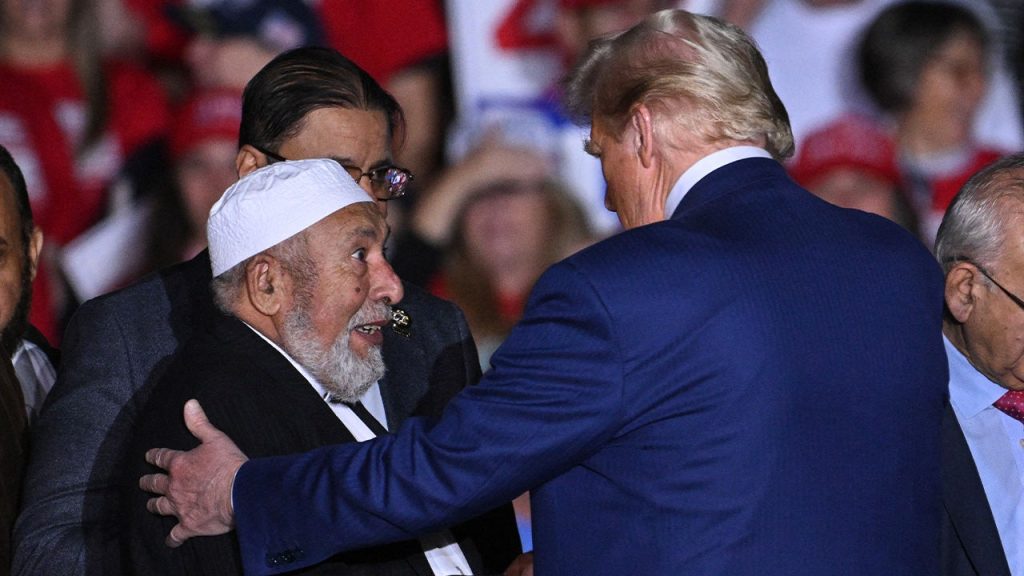Former President Trump earned endorsements from Muslim leaders and Imams during a campaign rally in Michigan. The group of leaders cited Trump’s commitment to ending wars and ensuring global peace as a primary reason for their support. Imam Belal Alzuhairi expressed that Muslims stand with Trump because he promises peace, not war. Mayor Bill Bazzi, the first Muslim and Arab American elected mayor of Dearborn Heights, Michigan, also expressed support for Trump, stating that he believes Trump will make the United States and the world safe again. Trump responded positively to the endorsements, calling the leaders “great people.”
The Muslim leaders officially endorsed Trump after Amer Ghalib, the mayor of the Detroit-area suburb Hamtramck, announced his support for Trump in a Facebook post. Ghalib stated that he believes Trump is the right choice for this critical time, regardless of the election outcome. Ghalib had a private conversation with Trump in Flint where they discussed various topics, including the debates, polls updates, Arab American concerns, and the situation in Yemen. These endorsements come at a crucial time as Michigan, a swing state, has seen record-breaking early voting numbers, with over 1.2 million voters already casting their ballots.
Trump’s endorsements from Muslim leaders show a shift in support from a typically Democratic constituency. The leaders praised Trump’s promises for peace and his efforts to end wars in the Middle East and Ukraine. They believe that Trump can make a difference in ending bloodshed and creating a safer world. Mayor Bazzi highlighted Trump’s commitment to stopping wars and making the United States and the world safe again. The Muslim leaders’ endorsements may influence other voters, especially in Michigan, a critical swing state in the upcoming election.
The endorsements from Muslim leaders have sparked both positive and negative reactions. While Trump and his supporters have welcomed the endorsements, some critics find them surprising and have questioned the leaders’ motives. However, the support from Muslim leaders highlights the diversity of opinions within the Muslim community and challenges stereotypes about their political affiliations. The endorsements also shed light on the importance of engaging with different communities and understanding the complexity of political identities within them.
The endorsements from Muslim leaders have implications beyond the election, as they signal a potential shift in political alliances and serve as a reminder of the diversity of opinions within any community. Trump’s acceptance of the endorsements and his positive response to the leaders’ support may strengthen his appeal to a broader range of voters. The endorsements have drawn attention to Michigan as a crucial swing state, where early voting numbers have broken records. The endorsements may influence voter turnout and the final outcome of the election in Michigan and across the country.


